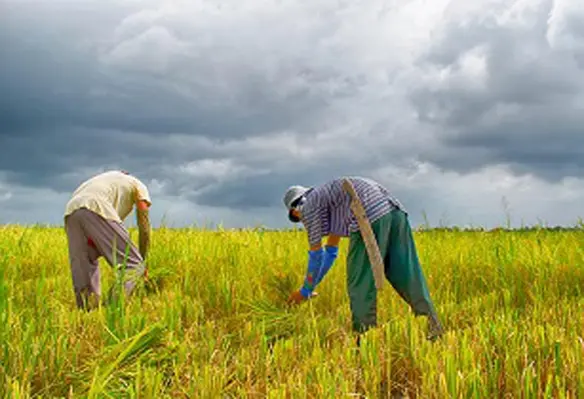The Green Climate Fund (GCF) has approved a Philippine funding proposal on ‘Adapting Philippine Agriculture to Climate Change’ at its 35th Board Meeting held in Songdo, Incheon in the Republic of Korea
Under US$39.2mn, seven-year initiative, the Food and Agriculture Organisation of the United Nations (FAO), GCF and the Government of the Philippines will work together to boost the resilience of climate-vulnerable rural smallholder farmers. The project will play a key role in advancing the country’s transition towards more sustainable, resilient and inclusive agrifood systems. It will be supported by a US$26.2mn GCF grant and US$12.9mn in co-financing from the Department of Agriculture (DA), and the Philippine Atmospheric, Geophysical and Astronomical Services Administration (PAGASA).
The initiative will directly benefit 1.25 million rural Filipino farmers by raising their awareness of climate risks and risk-reduction measures, building their capacity to develop enterprises and to access finance and related technologies, and adopting climate-resilient agriculture (CRA) practices.
“We are truly grateful to GCF for supporting this important and timely initiative that will help Filipino smallholder farmers adapt to and mitigate the impacts of the climate crisis on their livelihoods. FAO is and will continue to remain committed to supporting the country in pursuing climate action through this initiative, leveraging our technical expertise and experience in climate-resilient agriculture that we will extend to the Philippine government, particularly our long-standing partners’ DA and PAGASA,” commented Lionel Dabbadie, FAO representative in the Philippines.
“Partnering with DOST- PAGASA since 2011, FAO has assisted the country in pursuit of its development objectives through promoting agricultural adaptation and mitigation to climate change, such as CRA and reducing disaster risks through the use of weather and climate information services. It is indeed a great opportunity that these valuable and innovative undertakings will be elevated to the next level with the support from GCF through this project,” added Dr Vicente Malano, PAGASA administrator.
The collaborative initiative is poised to support the most vulnerable farmers, including women, youth, and indigenous communities by providing them with access to targeted climate information and technical services for CRA. By assisting smallholder farmers in overcoming obstacles related to inputs and market access, and building their capacity to develop and implement CRA investment plans, the project will enable a sustainable shift to these crucial agricultural practices, thereby improving food security, household incomes and resilience.
At the national level, the project will work towards incorporating CRA into the development agendas of the national government and local government units. It will work with the private sector and financial institutions to develop robust CRA value chains, and provide financial and risk-transfer products to boost investments in climate actions. By doing so, the project will empower these institutions and facilitate partnerships to create a more sustainable future for all.
To ensure the project’s long-term sustainability, the Land Bank of the Philippines – a GCF Direct Access Entity – will play a critical role in leveraging finance to increase farmers’ access to the bank’s lending programmes.
The project is also expected to deliver indirect benefits to over five million Filipinos, thanks to enhanced information systems and strengthened institutional capacity, which will advance the widespread adoption of CRA in the country. Special attention will be paid to Indigenous People, women and girls, ensuring their fruitful participation and benefits.
The initiative will create mitigation gains by reducing emissions by some 4.38 tonnes of carbon dioxide-equivalent over a 20-year period as a result of the application of CRA practices and better land use.




